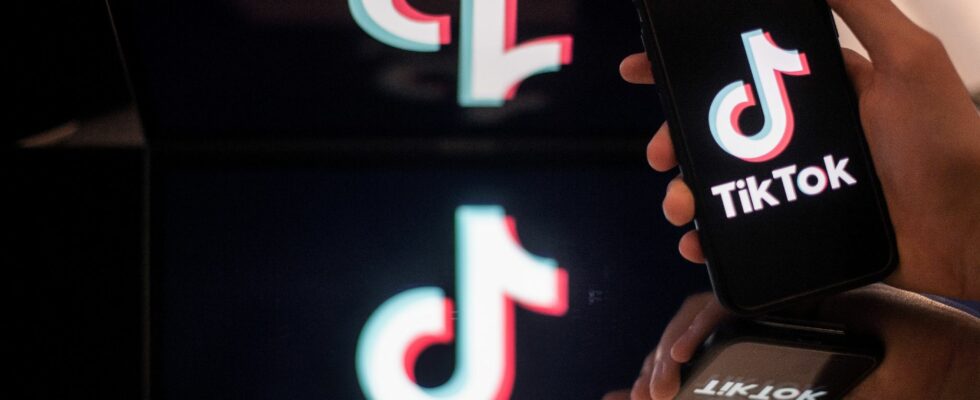“Indispensable safeguards” in the face of “the growing precocity of digital puberty and the power of the tools made available to our young people”. On Thursday March 2, the National Assembly voted for minors under the age of 15 to obtain their parents’ consent to create a TikTok, Instagram or Snapchat account. The bill, brought by Horizons MP Laurent Marcangeli, was adopted almost unanimously (82 votes to 2) at first reading, and must now be examined in the Senate.
The “numerical majority” at 15 to which the text refers is not new: introduced in France in 2018 in application of European legislation, this threshold concerns more broadly the age under which parental consent is required for the personal data of a minor are processed. Not really applied so far, it has had no impact in terms of children’s access to social networks. Problem: “scientific evidence of causal links between the unbridled use of social networks and the mental health of children and adolescents is accumulating”, underlined the Minister Delegate for the Digital Transition, Jean-Noël Barrot, who supported the voted text.
According to one recent Stem4 study, a British association specializing in the mental health of teenagers, three quarters of 12-21 year olds do not like their physical appearance, and the proportion rises to 8 out of 10 among 18-21 year olds. More generally, half of the young people surveyed admit to having desocialized or to having adopted draconian diets following pressure from social networks. To deal with this, the text voted on Thursday establishes the obligation for social networks “to put in place a technical solution for verifying the age of users and the consent of holders of parental authority” for those under 15 years old. , “solution” which must be certified by the authorities. In the event of a breach, a fine may be imposed on the company, up to 1% of its worldwide turnover.
“Solutions hard to put in place”
However, can this new measure be correctly applied? Asked about France info Friday March 3, Justine Atlan, director of the e-Enfance association, is confident: “no measure is infallible, but as we start from scratch, even if they are applied at 50%, it will be better than nothing” indicates she, before mentioning “biometric systems, which make it possible to estimate the age from an image”, or the request for an “identity card”. “The solutions are hard to put in place because of respect for privacy, but also because they will slow down access to platforms,” said Jérôme de Mercey, co-founder of Dastra, a start-up. up specialized in data protection, in an article of Parisian.
While waiting to learn more about the practical details, Charlotte Caubel, the Secretary of State for Children, welcomed the vote on this law which “corresponds to an expectation of parents”. “It is in line with our commitments to protect children on the Internet,” she said on her Twitter account. Last February, the government launched a campaign to raise awareness jeprotegemonenfant.gouv.fr, a “practical” website that centralizes all the information parents need to better support their children in the face of screens. Since September 5, 2022, a law has also required manufacturers of devices connected to the Internet to install a parental control system by default, a world first according to Jean-Noël Barrot.
